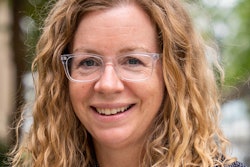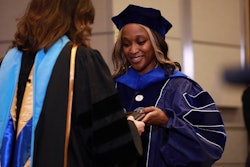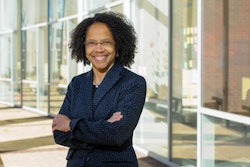Last summer, we implemented gender-neutral bathrooms on campus. The request for gender-neutral bathrooms had come from a student club that presented the administration with a letter of support, rather than a petition, with signatures from supporters across campus. They were intentional about not presenting a petition which, as they explained, would have set an adversarial tone.
The leadership of the club also wanted to meet with me to explain why they wanted to add some gender-neutral options for the bathrooms on campus and expressed that the college was a haven for them.
The challenges that these students presented were unfathomable to me as a heterosexual woman, and the arguments they presented were compelling. It was a no-brainer that we need to do this. It was a basic human rights issue that we needed to address. So, we kept some traditional bathrooms and turned others into gender-neutral ones.
We had members of the community who applauded the gender-neutral options and appreciated that we were taking one more step toward being more inclusive and embracing diversity. As with any change, we also had members of the community who were adamantly opposed to it. Rather than dismissing their concerns as pure ideological difference, we sought to understand their concerns. In listening to the community, some great suggestions were brought forward that we promptly implemented. Other concerns led to further discussions to clarify the rationale for the change or find a middle ground. In a few areas, we simply agreed to disagree.
I was reminded of this particular effort that we undertook to make good on our college’s commitment to equity, diversity and inclusion recently at the New York Times Higher Education Leaders’ Forum. This was an atypical and unique gathering different from most conferences within the academic arena. The forum was a much broader convening focused on salient contemporary issues within and outside of higher education that broadly affect society and civil society. The speakers came from diverse sectors, including staff from the Times, former Mayor Michael Bloomberg, think tank and nonprofit leaders, college and university faculty and executives, current and former politicians from both sides of the aisle and best-selling author Simon Sinek, among others.
While the conference covered a host of issues, the main take-away for me was the importance of promoting public discourse and diversity of thought, ideology, epistemology and embracing different views and people with different backgrounds and life journeys on our campuses.
The growing nationalism movement was a concern that many of the panelists at the forum shared. Former Virginia Gov. Terry McAuliffe, who led that state during the Charlottesville hate rally, emphatically made the case that our colleges and universities have to be institutions that bring people together and that appreciation for difference begins much early on in K-12.
Some also expressed concern for what they perceive as intolerance for divergent and specifically conservative views on campus. Many of the presenters commented on the state of public discourse across the country, and the tenor and content of seemingly “official” communication at the national stage (noting the lack of discourse and compromise).
At the same time, Sen. Lamar Alexander encouraged the audience to get used to the Twitter flurries because they won’t stop and can also teach us a few things. He also encouraged the audience of mostly college presidents to foster campuses where students listen to, debate and consider all points of views, especially those with which they disagree. A few others lamented the silencing of conservative views on campus and its implications for democracy.
The issues of tolerance, respect for difference, and discourse within higher education are important. In many ways, our sector bears responsibility for modeling what we hope to see across our country, even when we do not see it.
One dimension of diversity that received far less attention but has great implications for our country’s geopolitical interests and economic productivity is the dehumanization of immigrants, especially of those already in the country. In November 2016, the National Bureau of Economic Research reported that immigrants account for half of all science, technology, engineering and math (STEM) workers with a Ph.D. In fields such as computer science and software programming, they account for a disproportionate majority.
Our country’s productivity growth relies on the contribution of not just native-born workers, but also immigrants. In their 2016 paper, University of Californian San Diego professor Gordon Hanson and Dartmouth College professor Matthew Slaughter document the role of highly-skilled immigrants in U.S. dominance in the STEM fields. Similarly, Mariano Sana of Vanderbilt University reported that in 2006, the ratio of foreign-born to native-born scientists was 3.1 to 1. In 2011, the Population Reference Bureau noted that one-fourth of all new U.S. engineering and technology business built in the important decade between 1995 and 2005—including Google and eBay—were started by immigrants. Over 50% of high-tech start-ups in Silicon Valley during that decade included a foreign-born scientist or engineer.
The United States has become preeminent in science, technology, health, engineering and in other areas because of our ability to attract people from all over the world. We give them the tools and remove the limits to what they can achieve and how many times they can reinvent themselves, and those people flourish. Few countries, including industrialized countries, do this as well as we do here in the U.S. So, the treatment of immigrants and the tenor of the current discourse around immigration, regardless of one’s stance on the issue, is particularly troubling.
Our version of democracy may not be perfect. All forms of government are flawed. Our efforts to cultivate critically thinking, discerning consumers of information, well-rounded leaders and citizens do not start on college campuses, but the role of higher education in deepening that education is important to society.
Dr. Yves Salomon-Fernandez is president of Cumberland County College in Vineland, N.J. You can follow her on Twitter @prezyves.





















